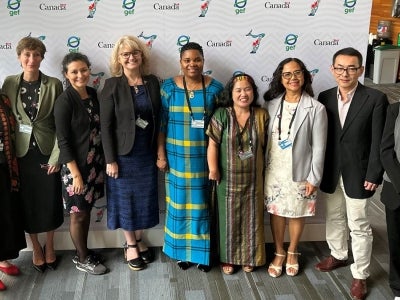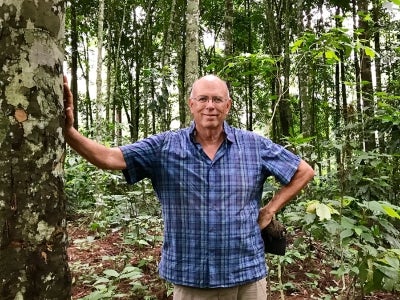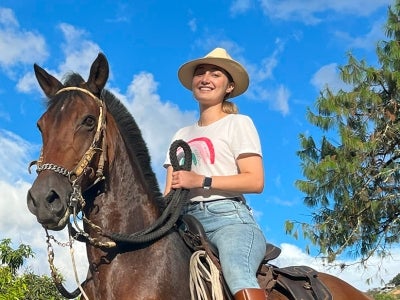
Photo courtesy of Juliet Grace Luwedde
Juliet Grace Luwedde is a Uganda-based climate activist and the Global Focal Point for the UNCCD Youth Caucus on Land and Desertification. In an interview ahead of the GEF Assembly, she described the roots of her interest in women’s empowerment and land rights as a cornerstone of sustainable agriculture, food security, and ecosystem protection.
Where did your interest in sustainable land use come from?
I am committed to promoting sustainable practices, and advocating for policies that conserve natural resources – this includes the design and implementation of agriculture and urban farming plans.
My work in this space started early on, when I was volunteering at an organization called TEENS Uganda – the acronym stands for training, education, and empowerment for neighborhood sustainability. During that time, we were training women about backyard gardening to help them grow their own food and generate an income. I was very affected by these women, and this experience motivated me to continue in this field. I launched a similar project in my school, since I realized that farming works not only in big spaces, but also in neglected areas around our homes. Small spaces can play their part, too!
What does gender equality have to do with climate change and land use?
My environmental advocacy is inextricably tied to my focus on women’s empowerment and land rights. There is a personal reason for this. In 2016, my mother purchased land with her small savings but was later swindled by the broker she had connected with, who to this date refuses to give her the title to the land she paid for. If she were a man, the story would be different. My mother is just one of many women who are denied access to land ownership through dubious means even though they have a right to own and access land. Many women like my mother lack the right resources pertaining to land ownership, and are therefore left out of sustainable land management decisions and planning. This is what I am currently involved in -- trying to bridge this gap by working with organizations and people who can help us on this quest.
If you could say one thing to today’s political or business leaders, what would it be?
Gender equality, women’s empowerment, and financial freedom depend on promoting women’s unfettered access to land and productive resources. It is imperative that we reform outdated systemic laws that restrict women's access to land if we want to land to be sustainably and justly managed for the future. By addressing these discriminatory laws and structures, we can make significant strides towards advancing equitable land rights for all and supporting more sustainable food systems.
What are your other interests and activities?
I am passionate about the outdoors, and enjoy hiking, nature walks, and bird watching.
What are you looking forward to at the GEF Assembly?
I am looking forward to engaging with policymakers and global leaders. As an activist, the GEF Assembly will provide me with a platform where I can interact with representatives of governments, international organizations, and policymakers to advocate for stronger climate action and to discuss solutions to environmental issues.
I am excited about the possibility of being able to influence policy and decision-making, as I am aware that the GEF Assembly outcomes can feed into global environmental policies and decision-making processes stretching into the future. Active participation by youth climate activists like myself in these discussions can help ensure that our voices and perspectives are considered over the long term.


